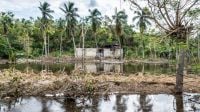Latest news
By country
By activity
- Rights (126)
- Emergency (669)
- Rehabilitation (490)
- Prevention (99)
- Inclusion (279)
- Health (197)
- Explosive weapons (355)
- Event (16)
- Covid-19 (5)
By publication date
Healing from accidental gunshot wound, Hazrat eager to play soccer again 11/25/25
To improve access to healthcare after the August 2025 earthquake in Afghanistan, HI deployed its emergency response teams with the support of the European Union as patients were flooding into Jalalabad hospital. There, HI's specialists treated patients injured in the disaster and those with unrelated needs.
- Afghanistan
After leg injury, Khalida learns to walk again 11/25/25
The August 31 earthquake was the deadliest in Afghanistan's recent history. To improve access to emergency care, HI deployed its teams with the support of the European Union.
- Afghanistan
Healing the physical and emotional wounds left by the earthquake in Afghanistan 11/25/25
In the days following the earthquake on August 31, HI deployed its teams of physical therapists and mental health specialists to provide first aid to survivors.
- Afghanistan
Trapped by War: Mykhailo’s Life After the Petal Mine 11/25/25
Mykhailo, 64, lives with a disability due to a petal mine injury that resulted in the amputation of his leg. He uses a wheelchair for mobility and lives with his wife, who is his primary caregiver.
- Ukraine
Lidiya’s Second Life: Surviving a Cluster Munition in Kharkiv 11/25/25
At 75, Lidiya survived a cluster munition strike while waiting for her pension in Derhachi, Ukraine. With HI support, she regained strength and hope, and dreams of returning home to peace.
- Ukraine
Landmines are still a threat in Lebanon 11/25/25
HI Acting Chief of Operations, Adnan Araji, explains how HI conducts clear landmine in Mount Lebanon, contamination dating back to the civil war.
- Lebanon
Inclusive education in Niger: Malika's future within reach 11/19/25
Malika, a girl with a visual disability, has been supported by HI's inclusive education work for almost four years. Studious and radiant, she thrives at school, enjoys playing with her friends and dreams of becoming a teacher.
- Niger
Ukraine: Yuliia, injured by a mine, regains hope 11/19/25
At the age of 20, Yuliia lost her legs and her sight in a mine explosion. With HI's support, she is learning to regain her independence.
- Ukraine
Afghanistan: Mashur walks again after a serious injury 11/14/25
Following the earthquake on August 31, HI, with support from the European Union, deployed its emergency physical therapy teams to improve access to quality care at Jalalabad Hospital.
- Afghanistan
Afghanistan: recovering after the earthquake 11/14/25
At the end of August, a powerful earthquake struck eastern Afghanistan. For two months, HI teams have been working to help people recover from their injuries.
- Afghanistan
Afif is overcoming obstacles with rehabilitation 11/12/25
Afif was diagnosed with an autoimmune disease. Within days, he could no longer walk. HI helped him recover.
- Occupied Palestinian Territory
In Syria, children are the main victims of explosive devices 11/12/25
Nada Ali Al Shathi came back to her village with her family. A few days later, her son was badly injured by an explosive device.
- Syria
Emergency in the Philippines: plunged into chaos once again 11/07/25
For the 20th time in 2025, the Philippines is facing an extremely violent typhoon. Kalmaegi is the deadliest of the year, with catastrophic consequences.
- Philippines
Peru: local and inclusive solutions to climate change 11/03/25
In the heart of the Peruvian Amazon and Andes regions, HI is empowering women, young people, and individuals with disabilities to combat the effects of climate change.
- Peru
Tropical storm Melissa hits the Caribbean with full force 10/31/25
In Haiti and Cuba, where HI teams are based, the damage is considerable. There are fears that humanitarian needs will skyrocket.
- Cuba
- Haiti


















